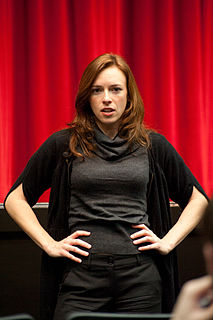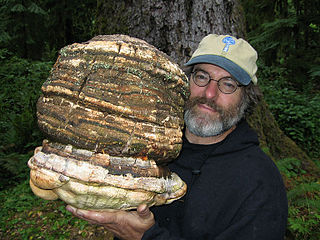A Quote by Jeffrey Pfeffer
The stories leaders and others tell, few of which are true, are a lousy foundation on which to base any sort of science, and we know how to accomplish behavioral change and the importance of priming, informational saliency, and social networks. Producing inspiration and other good feelings doesn't last very long.
Related Quotes
I'm interested in such things as the difference between how we perceive the world and what the world turns out to be. The difference is between the stories we tell others and the stories we tell ourselves. There is a wonderful Russian saying, which I use as the epigraph of one of my novels, which goes, He lies like an eyewitness. Which is very sly, clever and true.
There is behavioral ecology, which looks closely at the difference different ecologies make to behavior and other features of animals and humans. There's evolutionary individual psychology, there's evolutionary social psychology. In Darwin's terms, evolution couldn't exist without variation, and variation is important in behavioral genetics. And so on, and so on. There are so many instances in which evolution actually sharpens the precision, I think, with which one can find out the importance of differences. We're interested in differences as well as commonalities.
We can tell people abstract rules of thumb which we have derived from prior experiences, but it is very difficult for other people to learn from these. We have difficulty remembering such abstractions, but we can more easily remember a good story. Stories give life to past experience. Stories make the events in memory memorable to others and to ourselves. This is one of the reasons why people like to tell stories.
The history of science, like the history of all human ideas, is a history of irresponsible dreams, of obstinacy, and of error. But science is one of the very few human activities-perhaps the only one-in which errors are systematically criticized and fairly often, in time, corrected. This is why we can say that, in science, we often learn from our mistakes, and why we can speak clearly and sensibly about making progress there. In most other fields of human endeavour there is change, but rarely progress ... And in most fields we do not even know how to evaluate change.
But how can you know anything of the impression made on others? Who can assure you that others do not draw therefrom incentives to evil? You do not know the depths of human frailty. . . Oh, how truly was it said that if some Christian women could only suspect the temptations and falls they cause in others with modes of dress and familiarity in behavior, which they unthinkingly consider as of no importance, they would be shocked by the responsibility which is theirs.
While much of modern behavioral and social science treats individuals as autonomous agents, it is absolutely clear that the way we think and act is enormously influenced by the culture in which we live. It also is clear that the major elements of modern culture-science, technology, law, music, and religion-have evolved over time in a quite concrete sense of the term. Mesoudi makes these arguments very well and his book is a very good read.
Today we understand that reality corresponds to a model - or, even better, the sum of various models - which in science are termed "complex systems" - not complicated or difficult, that's a different thing! This complexity is what creates that which we all know - the World - is connected in a system of networks - and I'm not referring only to the internet but also to thousands of analog networks in which we are all immersed at every instant.
Each of us is comprised of stories, stories not only about ourselves but stories about ancestors we never knew and people we've never met. We have stories we love to tell and stories we have never told anyone. The extent to which others know us is determined by the stories we choose to share. We extend a deep trust to someone when we say, "I'm going to tell you something I've never told anyone." Sharing stories creates trust because through stories we come to a recognition of how much we have in common.
It is time to create new social science departments that reflect the breadth and complexity of the problems we face as well as the novelty of 21st-century science. These would include departments of biosocial science, network science, neuroeconomics, behavioral genetics and computational social science.
As with any other great force of nature, there is both glory and danger in the stories we tell ourselves. Some are toxic and keep our problems festering. Others are tonic and bring us beyond the limitations of our previous history. To be in a life of our own definition, we must be able to discover which stories we are following and determine which ones help us grow the most interesting possibilities.
What I think is great about Pippin, specifically, and I wouldn't make this generalization about all musicals, is that it is about how we tell stories and the way stories are very subjective. How we tell some things and leave other things out in the way The Princess Bride is or The Wizard of Oz is, which both have a framing device.


































